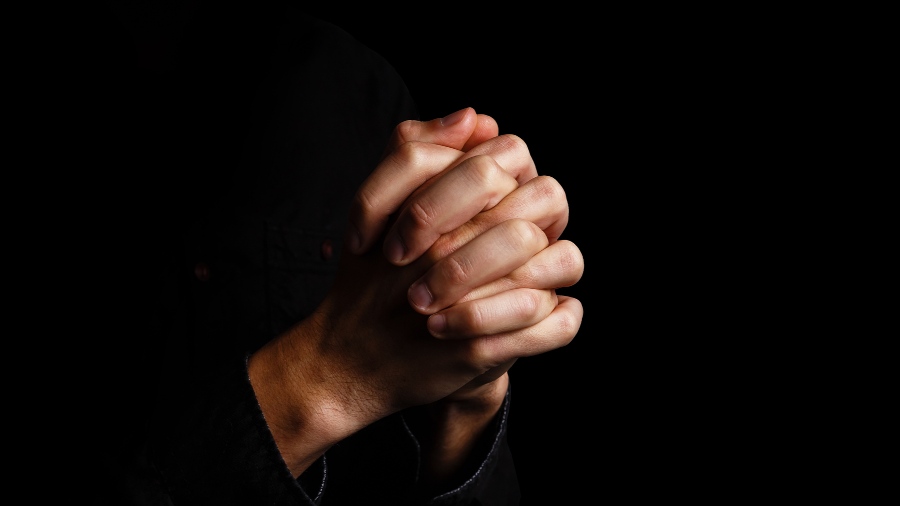Coach Kennedy: From the Field to the Supreme Court
Coach Kennedy’s clarity and courage give the Supreme Court the opportunity to provide the clarity on religious freedom desperately needed in public schools and other institutions.

Later this month, the U.S. Supreme Court will hear the case of high school football coach Joe Kennedy, who was fired from a Washington state public school for praying on the football field after games. He never forced anyone to join him, though many students and others often did, and he even agreed to pray silently by himself after the school raised concerns. That wasn’t enough for school officials who demanded that if he insisted on closing his eyes in silent prayer, he had to do it somewhere out of sight. Coach Kennedy recognized their demands as a violation of his right to free religious expression. He is represented by First Liberty Institute.
Real People, Real Sacrifices
Coach Kennedy didn’t set out to be a culture warrior or religious freedom icon. Like Jack Phillips and fellow Washingtonian Barronelle Stutzman, Kennedy has been objectified and caricatured. Political movements do this to people whose stories are valuable for political purposes. But these are more than faces on T-shirts. They are real people who have made real sacrifices. Barronelle Stutzman lost her flower shop. Jack Phillips has been harassed for going on 10 years now. Coach Kennedy just wanted to coach football.
We must not believe that unchecked and increased religious censorship is inevitable. It isn’t, and it never should be.
How the rest of us should respond is by taking any opportunity we can to pray for him and his family. His story is one of many verifications that serious violations of religious freedom are actually happening.
Animus or Ignorance
Some of these violations are clearly motivated by religious animus. For example, in Finland, a former parliamentarian was charged with criminally inciting hatred against gay people for quoting the Book of Romans to explain her views on sexuality. Thankfully, last week a Finnish Court ruled strongly in favor of both logic and free expression, protecting this official’s speech.
Other times, religious liberty violations are more symptoms of bureaucratic inertia or ignorance than of animus. The first few letters that Coach Kennedy’s school sent asking him to stop praying aren’t the rantings of radical atheists. In fact, the officials said they knew Coach Kennedy was “well-intentioned” and that he had never forced any students to participate in his prayer. Still, they asked him to stop, citing their fear that they’d be sued for a First Amendment violation. They didn’t hate Coach Kennedy. They just didn’t understand the First Amendment. They really didn’t understand the First Amendment, in fact, which led to increasingly strange demands.
In fact, religious organizations such as First Liberty Institute say that’s not uncommon. The majority of religious freedom violations are resolved quickly and quietly by sending a letter to an offending school or company, simply informing them of the law and its protections.
Intolerance of Individual Freedom
But whenever ignorance of the law mixes with human stubbornness or, even worse, an animus toward Christianity and traditional Christian morality, institutions become increasingly intolerant of an individual’s religious freedom. Even if it’s still illegal, which it is, it becomes socially and politically easier. The state of Washington seems to be case-in-point.
Coach Kennedy’s clarity and courage give the Supreme Court the opportunity to provide the clarity on religious freedom desperately needed in public schools and other institutions.
Don’t Believe the “Inevitability” Narrative
All Christians need that kind of clarity. Too many have believed a sort of “inevitability” narrative about the restriction of religious freedom advanced by bureaucratic demands. In fact, religious freedom is affirmed by the Supreme Court more often than not. And offending institutions back down more often than you think.
Christians absolutely can stand on a football field and close our eyes in prayer, even if other people can see us. Christian educators can cite the Bible as a historical record or a masterclass in philosophy. Christian office workers can place a Bible on their desks. Christian school kids can host Bible studies after school. That’s why I’m grateful for organizations that defend these rights and for organizations like Gateways to Better Education who teach Christian educators that they have those rights.
The cartoon version of what’s going on is that Christians like Coach Kennedy throw a temper tantrum in order to force religion on others. The real story is that religious freedom advances both Gospel witness and the public good, is a first freedom among many others, and is defensible, even as public sentiment against Christianity grows more hostile. We must not believe that unchecked and increased religious censorship is inevitable. It isn’t, and it never should be.
John Stonestreet serves as President of the Colson Center for Christian Worldview. Maria Baer is a reporter, writer, and podcaster at the Colson Center for Christian Worldview.
Originally published on Breakpoint.org: BreakPoint Commentaries. Republished with permission of The Colson Center for Christian Worldview.







